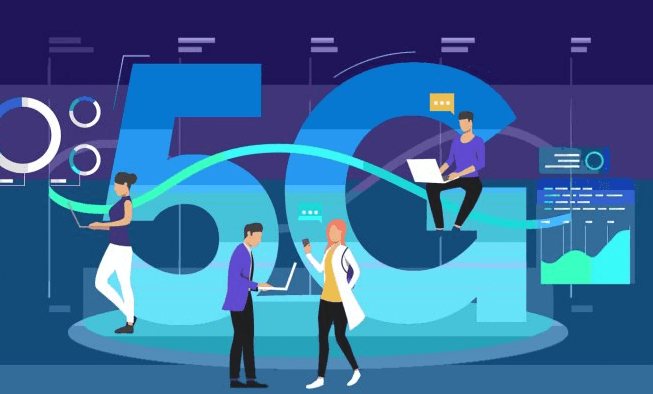What are the implications of the widespread adoption of 5G technology for businesses and consumers in the USA?

Introduction
The rollout of 5G technology is poised to bring about significant transformations for both businesses and consumers in the USA. As the next generation of mobile networks, 5G promises to deliver faster speeds, lower latency, and greater capacity, paving the way for innovative services, more connected devices, and a seamless digital experience. This article explores the various implications of this technology’s widespread adoption and how it will shape the future of commerce, lifestyle, and societal norms in the USA.
Understanding 5G Technology and Its Advancements
5G technology represents a fundamental shift in the approach to wireless networks, offering capabilities that far exceed those of its predecessors. With the ability to support up to a million devices per square kilometer, compared to the tens of thousands supported by 4G, the implications for IoT integration in urban and rural settings are profound. Furthermore, the decrease in latency to potentially one millisecond opens up possibilities for real-time applications, critical for areas like telemedicine and autonomous driving.
Impact on Consumer Connectivity and Lifestyle
For consumers, 5G is expected to revolutionize daily life. Enhanced connectivity can lead to improved online experiences, such as faster download and upload speeds, higher-quality video streaming, and more responsive gaming experiences. Additionally, 5G facilitates the growth of smart home technologies, allowing for more interconnected and automated homes. The technology also stands to enhance mobile connectivity, eliminating buffering and enabling uninterrupted access to digital services.
Revolutionizing Business Operations and Strategies
Businesses stand to gain significantly from the widespread adoption of 5G. The technology enables more efficient workflows, enhanced data analytics, and smarter supply chain management through improved real-time tracking and logistics. For industries like manufacturing, 5G can drive the implementation of smart factories where machinery and equipment are interconnected, leading to increased operational efficiency and reduced downtime.
New Opportunities and Challenges in Various Sectors
The implications of 5G extend across various sectors including healthcare, automotive, and entertainment. In healthcare, 5G could enable more robust telehealth services and remote monitoring, potentially transforming patient care. The automotive industry could see the accelerated development of autonomous vehicles, while the entertainment sector could experience innovations such as virtual reality (VR) and augmented reality (AR) that require high-speed, continuous connectivity.
Cybersecurity and Data Privacy Concerns
With greater connectivity comes increased risks. The adoption of 5G raises significant cybersecurity concerns, as the vast number of connected devices could potentially lead to more points of vulnerability. Protecting these networks and ensuring the privacy and security of user data is paramount, requiring new standards and regulations to keep pace with technology advancements.
Economic Impact and Job Creation
The economic implications of 5G are vast. Not only could it lead to job creation, particularly in tech and engineering fields, but it may also spur economic growth through new products and services that capitalize on enhanced connectivity. Additionally, 5G could help bridge the digital divide by providing high-speed internet access to underserved rural areas, thereby fostering greater economic inclusion.
Policy and Regulatory Implications
To facilitate the successful rollout of 5G, significant regulatory challenges need to be addressed. This includes the allocation of spectrum, the placement of new infrastructure, and considerations around equitable access. Policymakers will need to work closely with industry leaders to ensure that the deployment of 5G technology benefits all sectors of society.
Long-Term Societal Changes
Beyond immediate economic and technical impacts, 5G could influence societal norms and behaviors. For instance, the ability to connect more devices and execute data-intensive tasks in real-time could lead to changes in how individuals interact with technology on a daily basis, potentially shifting work-life balances and social interactions.
Conclusion
The widespread adoption of 5G technology in the USA holds transformative potential for both businesses and consumers. By fostering significant advancements in connectivity and enabling a multitude of new applications and services, 5G could reshape the economic landscape and catalyze societal shifts. However, this new era also requires careful consideration of security, regulatory, and equity issues to ensure that its benefits can be fully realized and widely distributed.



